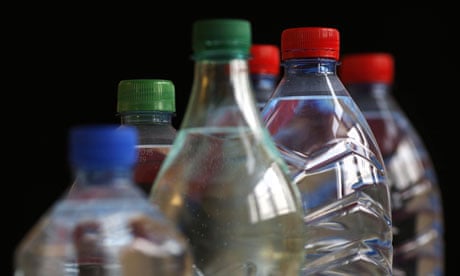They are sold as being cleaner, healthier and purer than the water that spouts from the average French tap.
Now, however, an investigation has discovered traces of pesticides and prescription drugs – including a medicine used to treat breast cancer – in almost one in five brands of bottled water on the shelves of France's supermarkets.
While scientists say the contamination is minuscule and the water remains safe, consumer groups are warning of a "potential cocktail effect" for drinkers, and say the findings raise serious environmental concerns.
The study was carried out by the consumer magazine 60 Millions de Consommateurs and the non-governmental organisation specialising in global water issues, Fondation France Libertés.
Researchers analysed 47 brands of bottled water widely available in France, and discovered that 10 contained "residues from drugs or pesticides".
"The biggest surprise was the presence of tamoxifen, a synthetic hormone used in the treatment of breast cancer," the magazine said. It reported finding traces of the powerful prescription drug in the popular brands Mont Roucous, St-Yorre, Salvetat, Saint Amand and the Carrefour discount label Céline Cristaline.
It added the quantity was minute but "enough for us to question the purity of the original produce imposed by regulations covering mineral water".
Traces of the prescription drugs buflomedil and naftidrofuryl, known as vasodilators and used to dilate arteries in those with high blood pressure, were found in Hepar and Saint Amand mineral waters.
Molecules from pesticides banned in 2001 were found in bottles of Vittel, Volvic, Cora and Cristaline.
After the mineral water companies contested the results, the magazine commissioned a second round of tests, which confirmed the first results.
"It's true the micropollutants found were present in very small quantities, but the range of them raises concerns about a potential cocktail effect," 60 Millions de Consommateurs reported.
"This is serious enough to call for a much bigger study," it added, calling for tighter controls on bottled waters to identify "new pollutants".
Thomas Laurenceau, the magazine's editor, said: "What we found is not that one brand is more risky than another; there are no good and bad. The problem is across the whole range.
"The bottlers are extremely careful but it is worrying to see things there that shouldn't be there, even if they are in minuscule quantities."
He added: "In the short term, there is absolutely no problem of quality and these waters are perfectly drinkable. We are talking about tiny traces, millionths of a micron, it's really minuscule".
He said the inquiry did not question the honesty of those bottling the water but said there was "concern about the overall resource" in the light of environmental contamination by humans.
In 2011, the magazine and France Libertés launched Opération Transparence, calling for greater testing of water supplies and in January published a map of tap water quality in France showing pollution limits were passed in 420 areas.
In the latest report, Perrier water and Quézac were declared "clean" by the magazine.

Comments (…)
Sign in or create your Guardian account to join the discussion